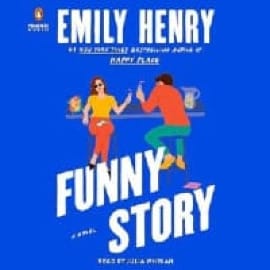Key Takeaways:
- African American children's books are vital for fostering diversity and understanding.
- These books offer unique stories that reflect the rich cultural heritage and experiences of African Americans.
- They serve as a tool for education and inspiration for all ages.
African American children's books are more than just stories; they are windows and mirrors. Windows that offer a view into the diverse experiences of African Americans, and mirrors that reflect the lives of black children, allowing them to see themselves heroically and beautifully represented. This genre of kids' books is crucial not only for black children but for children of all backgrounds, as it promotes understanding and respect for diversity.
These books often highlight themes of resilience, community, and the magic of everyday life, intertwined with the rich traditions and history that shape the African American experience. From picture books for toddlers to chapter books for older kids, each story serves to educate and inspire, fostering a deeper understanding of the world and the varied tapestry of people in it.


The Power of Representation
One cannot underestimate the power of seeing oneself in the pages of a book. For many African American children, these books provide their first encounter with characters and stories that resonate with their own lives. Authors like Jacqueline Woodson and Kwame Alexander have been at the forefront, crafting narratives that speak directly to the African American experience, making every child feel seen and valued.
Moreover, these stories often delve into historical contexts, allowing children to walk through the past, understanding the struggles and triumphs of generations before them. This not only enriches their knowledge but also instills a sense of pride and identity. Books like "Henry's Freedom Box" by Ellen Levine and Kadir Nelson's "Heart and Soul: The Story of America and African Americans" are perfect examples that blend captivating storytelling with profound historical insights.
Embracing Cultural Values in Kids' Books
Children's books are not just stories; they are gateways to understanding the world. By featuring African American protagonists and cultural themes, these books introduce young readers to a spectrum of values and beliefs. Imagine a little girl in a small town, clutching a book where the heroine looks like her, learns like her, and even faces challenges like her. This connection fosters a deep sense of identity and belonging, reinforcing the importance of inclusivity in every page turn.


Moreover, when parents visit the bookstore or browse online to add new titles to their cart, they're presented with an opportunity to discuss these values with their children. Whether it's a story about a young boy learning the significance of Juneteenth or a series where family and community play pivotal roles, these books serve as conversation starters about history, equality, and respect. Each book is a brick in the foundation of a child's understanding of their country and their place within it.
Fostering Empathy Through Stories
Children's books are not just about whimsical tales or fairy-tale endings; they're powerful tools for nurturing empathy. When kids read stories featuring diverse characters, like those in African American children's books, they walk a mile in someone else's shoes, albeit through the pages of a book. This experience is invaluable as it opens their eyes to the lives, challenges, and triumphs of others, different from their own experiences.
Moreover, these stories often bring to the forefront themes of kindness, understanding, and acceptance. For instance, a featured book might follow a day in the life of a young African American girl dealing with societal expectations and personal dreams. Through her story, children learn the importance of supporting one another regardless of background, fostering a sense of community and empathy from a tender age.
Nurturing Curiosity with Every Flip
Children's books are not just gateways to imaginary worlds; they are the spark plugs of curiosity in young minds. When kids encounter characters and narratives from diverse backgrounds, especially in African American children's books, it ignites a curiosity about cultures and histories that are different from their own. This curiosity is the seed from which knowledge and understanding grow, making children's books a powerful tool in shaping open, inquisitive minds.
Moreover, the beauty of these books lies in their ability to transform "once upon a time" into "what if?" This transformation is crucial in a world where understanding and acceptance are more than necessary; they are imperative. By introducing young readers to the trials, triumphs, and everyday lives of African American characters, kids' books do more than tell a story—they open a dialogue, encouraging questions, exploration, and even more importantly, understanding.


Inspiring Young Minds with Authentic Voices
When we dive into the world of children's books, the authentic voices of African American authors are like fresh air in a crowded room. These books serve as a mirror for African American children, reflecting their own experiences and affirming their identity. For instance, books like "Hair Love" by Matthew A. Cherry celebrate natural hair and foster a sense of pride in one's heritage. This not only boosts self-esteem but also plants the seeds of confidence in young readers.
Moreover, these stories are a window for non-African American kids, offering a glimpse into lives that might be different from their own. By presenting real-life scenarios and diverse characters, kids' books become a powerful tool for teaching inclusivity and respect. This exposure at a young age is crucial in shaping a more understanding and empathetic future generation. It's like opening a book and stepping into someone else's shoes, a journey that broadens perspectives and enriches minds.
Unveiling Hidden Histories in Children's Books
African American children's books are like treasure chests, brimming with stories that unveil hidden histories and forgotten heroes. These books introduce young readers to figures and events that traditional histories might have overlooked. By bringing these stories to light, kids' books not only educate but also inspire a sense of pride and identity among young readers. They serve as a bridge to the past, making history accessible and engaging through the powerful tool of storytelling.
Moreover, these narratives often highlight the achievements and struggles of African American figures, providing a fuller, more nuanced view of history. For instance, books about lesser-known leaders, inventors, and artists offer kids a more comprehensive understanding of the contributions of African Americans. This not only fills gaps in their historical knowledge but also encourages a deeper respect for diversity and perseverance. Through these stories, children learn that history is made up of many voices, and each one is essential to the complete picture.


Celebrating Unsung Heroes in Children's Literature
African American children's books often shine a spotlight on the unsung heroes who have shaped history but are seldom mentioned in mainstream narratives. These stories serve as a bridge, connecting young readers to the profound contributions of African American figures whose resilience and wisdom have left indelible marks on society. By introducing children to these lesser-known champions, kids' books not only educate but also inspire a sense of pride and belonging.
Moreover, these narratives are crucial in building a more inclusive worldview for young readers. When children discover stories of perseverance and courage, they learn valuable life lessons about overcoming adversity and achieving greatness despite obstacles. These books are not just about recounting historical facts; they are about sowing seeds of inspiration that could grow into trees of ambition and success in the minds of young readers.
The Role of Art in African American Children's Books
The visual elements in children's books play a pivotal role in storytelling, especially in those that celebrate African American culture and history. Illustrations in these books do more than just complement the text; they breathe life into the stories, adding a layer of deeper understanding and connection. The art in these books often incorporates elements of African heritage, using vibrant colors and patterns that reflect the rich cultural tapestry of the African American community.


Furthermore, these illustrations serve as a visual language that speaks volumes to children, helping them grasp complex themes in an engaging and accessible way. For many young readers, these images are their first encounter with the beauty and diversity of African American culture. Through art, children's books can captivate imaginations and foster a lifelong appreciation for diversity and the visual storytelling tradition of African Americans.
Cultivating Resilience Through Literary Journeys
Reading about the trials, triumphs, and tenacity of African American characters can significantly boost resilience in young readers. Children's books that tackle themes of overcoming adversity, standing up for justice, and persisting despite obstacles provide kids with a roadmap for navigating their own challenges. These stories teach valuable life lessons about resilience and determination, equipping children with the mental tools to face their own "giants."
Furthermore, these narratives often weave in elements of joy, community, and family, reinforcing the idea that strength comes from unity and shared experiences. For example, a story might depict a young protagonist who, with the support of their community, overcomes a significant challenge. This not only entertains but also instills a sense of hope and collective efficacy in young readers, showing them that they are not alone in their journey. Through these books, children absorb the wisdom that every hurdle is a stepping stone to greater strength.
Enriching the Educational Tapestry with Diverse Themes
African American children's books are not just stories; they are vibrant threads woven into the educational tapestry of our society. They introduce complex themes like resilience, justice, and equality through age-appropriate narratives that resonate with children. For example, "The Day You Begin" by Jacqueline Woodson encourages kids to embrace their uniqueness and find courage in sharing their stories, even when they feel like outsiders. This theme of acceptance is crucial for building a cohesive community where every voice is heard and valued.
These books also serve as excellent resources for educators to integrate diversity into their curriculum. By including a variety of children's books that cover a range of experiences and cultures, teachers can create a more inclusive classroom environment. It's akin to adding different spices to a dish, each one enhancing the flavor and making it more appealing. This approach not only makes learning more engaging for students but also equips them with the tools to navigate a diverse world with empathy and understanding.
Sparking Conversations at Home
African American children's books do more than entertain; they serve as conversation starters in homes, helping parents and guardians bridge topics that might seem tough to tackle. For instance, a story about a young African American hero overcoming obstacles can lead to a discussion on resilience, prejudice, and persistence. These are not just stories; they are reflections of reality that help children navigate their understanding of the world around them.
In addition to building awareness, these discussions at home can fortify family bonds. They turn reading time into a shared journey—a limited time each day when families can explore together, learn together, and grow together. This shared journey not only enriches the child's learning experience but also deepens the family's collective perspective on diversity and the importance of inclusivity in everyday life.
Connecting Generations with Every Page
Imagine a cozy evening where the only sounds are the turning of pages and the soft voice of a mommy reading to her child. African American children's books do more than just tell a story; they are a bridge between generations. These books often contain elements of historical significance and cultural heritage that moms and dads are eager to pass down to their children, making storytime both educational and bonding.
During these limited-time moments, the stories are not just heard but are felt and lived. As parents share these tales, they instill in their kids a strong sense of identity and belonging, which is crucial in building confident and aware young individuals. This shared experience not only strengthens family bonds but also roots children deeply in their rich cultural landscapes, preparing them for a more inclusive world.


Building Bridges with Books
In a world where children are bombarded with myriad perspectives and information, African American children's books do more than just tell a story; they build bridges. Consider a classroom where kids from diverse backgrounds come together. Here, books become a powerful tool for friends to explore and celebrate their differences. A book about a girl from Harlem who uses her musical talent to bring her community together doesn't just stay in the classroom; it travels in backpacks to homes, influencing more than just the child who read it.
These stories also encourage children to explore beyond their immediate surroundings. A series might feature a young protagonist visiting different states or even countries, meeting people who look different, speak differently, and live differently. This not only broadens their horizons but also plants the seeds of empathy and curiosity. By reading about diverse experiences and struggles, children learn to navigate the world with a broader, more inclusive perspective.
Broadening Horizons
African American children's books also play a pivotal role in broadening the perspectives of non-black readers. They serve as educational tools that help dismantle stereotypes and build empathy. By introducing young readers to the varied and vibrant cultures within the African American community, these books help shape a more inclusive society.
For parents and educators looking to diversify their bookshelves, there is a wealth of titles to choose from. Whether it's a story about everyday life or about significant historical events, these books can change the way children view the world and themselves. Encouraging kids to explore a range of stories from different cultures not only enhances their reading experience but also deepens their understanding and respect for others.
Summary
African American children's books are essential tools for education and inspiration, reflecting the diverse experiences and rich cultural heritage of African Americans. They provide powerful representation and help foster a deeper understanding of history and humanity. By incorporating these books into young readers' lives, we can help shape a more inclusive and empathetic generation.
FAQ
- Why are African American children's books important? African American children's books are crucial for providing representation and helping all children understand and appreciate cultural diversity. They also help instill pride and identity in African American children.
- Can these books be beneficial for non-African American children? Absolutely! These books are great resources for children of all backgrounds to learn about different cultures, histories, and experiences, which is essential for fostering empathy and inclusivity.
- Where can I find African American children's books? Many bookstores and libraries feature sections dedicated to diverse children's literature. Online platforms also offer categories for inclusive and culturally specific books, making it easier to find the perfect stories for your young readers.









